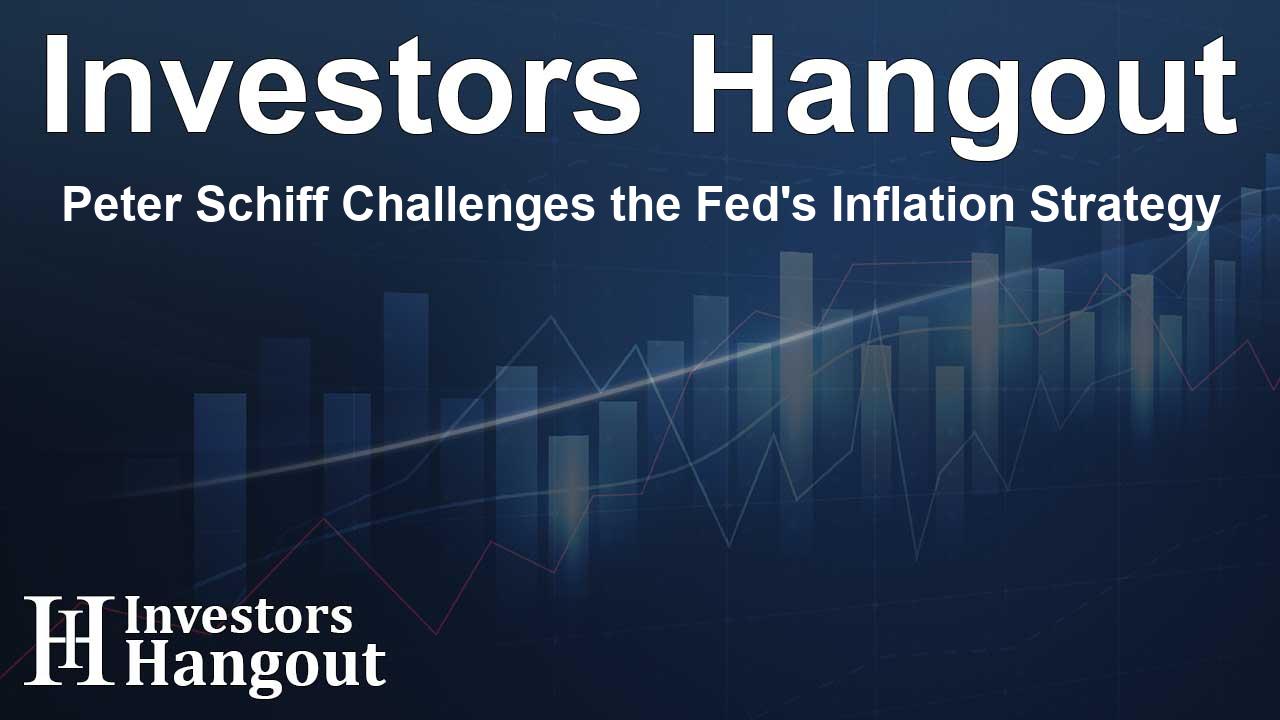Peter Schiff Challenges the Fed's Inflation Strategy

Peter Schiff's Critique of the Federal Reserve
Economist Peter Schiff has recently made headlines by criticizing the Federal Reserve’s 2% inflation target, an issue that has drawn significant attention amid persistent inflation concerns highlighted by Fed Chair Jerome Powell during congressional testimony.
Understanding the 2% Inflation Target
In a post on X, Schiff argued that the Fed's inflation target, which was officially adopted in 2012, has primarily served as a justification for loose monetary policies, including quantitative easing and a prolonged period of near-zero interest rates. He emphasized, “For the first 99 years of the Fed’s existence, the unofficial target was zero, as the mandate was price stability.”
Historical Context of Inflation Policies
A historical perspective was provided by former central banker Neil Grossman, who traced the 2% inflation concept back to the Reserve Bank of New Zealand in 1995. Grossman remarked that this target has allowed the Fed to sidestep one crucial part of its statutory mandate: maintaining price stability.
The Current Situation with Inflation
As of now, inflation stands at approximately 3%, still above the Fed’s target. During a recent hearing, Powell noted, “Today’s inflation figure indicates we’re close but not there yet,” adding that core inflation—excluding volatile items like food and energy—has risen unexpectedly to 3.3%.
Implications for Economic Policy
Recent minutes from Fed meetings reflect a cautious approach among officials, who express a “high degree of uncertainty” regarding future rate decisions. This sentiment resonates particularly well in the retail sector, with major entities like Walmart Inc. (NYSE: WMT) voicing apprehensions over economic conditions and ongoing inflation pressures.
The Fed's Monetary Stance
Powell has reiterated the Fed’s commitment to a restrictive monetary stance, deliberately avoiding any indication of the specific inflation rate necessary to trigger potential rate cuts. He raised red flags regarding the U.S. fiscal situation, labeling the current trend of deficits and low unemployment as “unsustainable.”
Market Reactions
Financial markets are closely following these developments, and there seems to be a palpable tension as analysts and economists assess the implications of the Fed's policies on overall economic health. The situation is further complicated by the influences of global markets and geopolitical factors.
Conclusion
The ongoing debate regarding the Federal Reserve's inflation target continues to stir discussions among economists and market participants. Schiff's critiques shed light on the complexities of monetary policy and its far-reaching implications for the economy, especially as stakeholders navigate a landscape marked by uncertainty.
Frequently Asked Questions
What prompted Peter Schiff's criticism of the Fed?
Schiff criticized the Fed's 2% inflation target, viewing it as a justification for loose monetary policies, which diverges from the historical aim of price stability.
Why was the 2% inflation target introduced by the Fed?
This target was adopted as a means for the Fed to justify quantitative easing and other accommodative monetary policies that emerged in the wake of economic crises.
How has core inflation changed recently?
Core inflation, which excludes food and energy, has risen to 3.3%, indicating that inflationary pressures remain robust despite the Fed's measures.
What does Powell mean by 'unsustainable' fiscal outlook?
Powell referred to the current trajectory of U.S. deficits and low unemployment as unsustainable, raising concerns about long-term economic stability.
How are major retailers reacting to inflation concerns?
Retailers like Walmart are expressing caution about economic uncertainties due to persistent inflation pressures, influencing their outlook and strategies.
About The Author
Contact Dylan Bailey privately here. Or send an email with ATTN: Dylan Bailey as the subject to contact@investorshangout.com.
About Investors Hangout
Investors Hangout is a leading online stock forum for financial discussion and learning, offering a wide range of free tools and resources. It draws in traders of all levels, who exchange market knowledge, investigate trading tactics, and keep an eye on industry developments in real time. Featuring financial articles, stock message boards, quotes, charts, company profiles, and live news updates. Through cooperative learning and a wealth of informational resources, it helps users from novices creating their first portfolios to experts honing their techniques. Join Investors Hangout today: https://investorshangout.com/
The content of this article is based on factual, publicly available information and does not represent legal, financial, or investment advice. Investors Hangout does not offer financial advice, and the author is not a licensed financial advisor. Consult a qualified advisor before making any financial or investment decisions based on this article. This article should not be considered advice to purchase, sell, or hold any securities or other investments. If any of the material provided here is inaccurate, please contact us for corrections.
